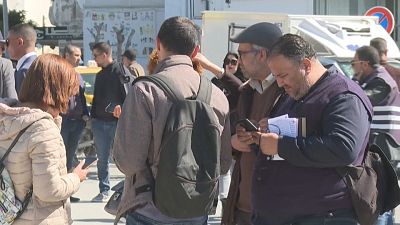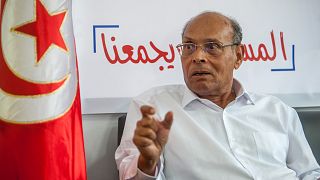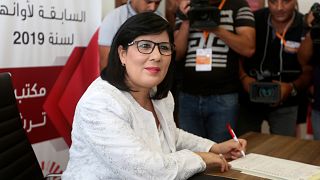Tunisia
Tunisia’s new parliament sat for the first time on Monday, but both local journalists working for private media and their international colleagues, were not allowed to attend.
Only the state TV, radio, and news agency were allowed to cover the event which was broadcast live on public television.
It is the first time since the 2011 revolution that the independent media were banned from attending the opening session of parliament.
"This is a new attempt to keep people in the dark, an attack on freedom of the press and the right of access to information, and the freedom of journalistic work," said Amira Mohamed, Vice-President of the National Union of Tunisian Journalists.
Many independent Tunisian journalists say they are increasingly concerned about what they see as an erosion of press freedom in the country.
Last year, they protested against what they described as the growing repression and intimidation of the media since President Kais Saied's power grab in 2021.
In the Reporters Without Borders 2022 Press Freedom Index, Tunisia fell 21 places, from 73rd to 94th position.
The opposition coalition said it would not recognise the legitimacy of the new parliament which was voted in following an election in which the turnout was just 11 per cent.
It will operate under a new constitution that Saied pushed through a referendum in July 2022, a year after he seized power by suspending the old assembly before dissolving it and dismissing the government.












00:50
Ons Jabeur retires from Wimbledon Opener due to breathing issues
01:34
Police officers accused of shooting Nairobi hawker remanded in custody for 15 days
01:57
Father of shooting victim calls for Kenyan police to be held accountable
01:00
Pope Leo XIV calls for the release of imprisoned journalists
Go to video
Global press freedom at all-time low according to RSF
02:03
Libya hosts African volleyball championship